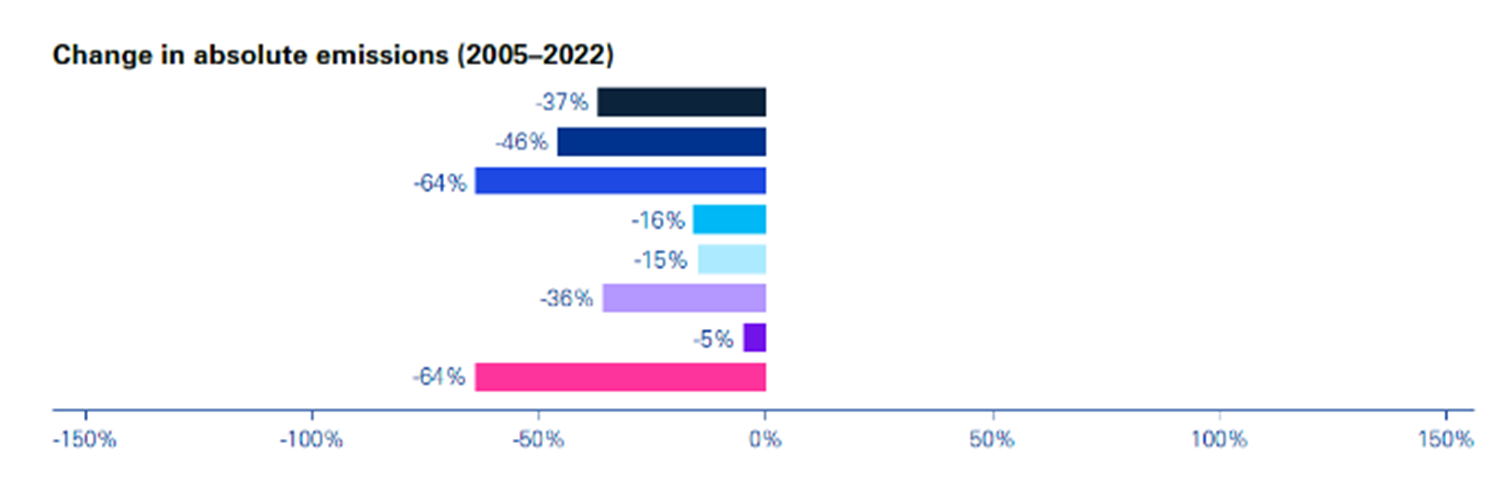When it comes to decarbonising heating, as one example, the UK Government ambition – to install 600,000 heat pumps a year by 2028 – is currently not on track to be met by action. The actual installation figure is around one ninth of this target and lagging some of its European neighbours. Similarly, while EV adoption has been strong with 23% of cars sold in 2022 being electric, progress on aviation and shipping is nowhere near the same level.
Simon Virley CB, Vice Chair and Head of Energy and Natural Resources at KPMG in the UK, commented:
“In many ways the UK has been a leader in Net Zero policies, with a strong track record on the adoption of renewables, significant progress in reducing dependency on coal, and high reporting standards for business. But past achievements are no guarantee of future success, and we are seeing many other nations catch up on the technology and policies needed, creating greater competition for green investment. Getting to Net Zero can deliver warmer homes, lower bills, and a cleaner environment. It will require a huge effort. But it also provides great opportunities for jobs and investment, which we will miss out on if we pull back now.”
Global progress being hampered by local backlash
Despite incremental momentum and specific successes such as the scaling up of low-carbon energy production from some of the world’s largest emitters, including the US, China, Brazil, Canada and the EU, progress is constrained by a backlash over the cost of decarbonisation and conflict over its domestic impact.
In certain markets and sectors, the impact of low carbon projects on local wildlife, biodiversity and communities is triggering a rise in ‘green on green’ conflicts, causing clashes between renewable projects and the local environment.
On an individual country level, meaningful progress is hindered by opposition to measures that are perceived to have a considerable cost to people’s livelihoods.
In fast-growing economies, rapidly increasing energy demand is triggering investment in both low carbon and fossil fuel generation, leaving certain countries, such as India, unlikely to reach Net Zero until 2070, while in China, coal consumption is projected to rise until 2025.
Progress across different sectors is varied. Despite worldwide variation in adoption levels, the significant growth in the sales share of EVs is a global success story in how rapidly some sectors can decarbonise. However, within the international aviation and shipping industries, the pace of change is considerably slower and the goal of reaching Net Zero by 2050 hinges on significant increases in the production of Sustainable Aviation Fuels (SAFs), as well as government incentives.
Mike Hayes, Climate Change and Decarbonisation Leader and Global Head of Renewable Energy at KPMG International, said:
“Governments, businesses, and society should continue to pursue action to address climate change. Further divisions between local communities and global interests are to be expected, but if we are to truly make meaningful strides towards Net Zero, at the necessary pace, while ensuring a stable energy supply, much greater focus is required. This includes in areas such as the policy environment (both carrot and stick), technical innovation, and educating society about the transformational changes that are required in our consumption and investment behaviors.”

